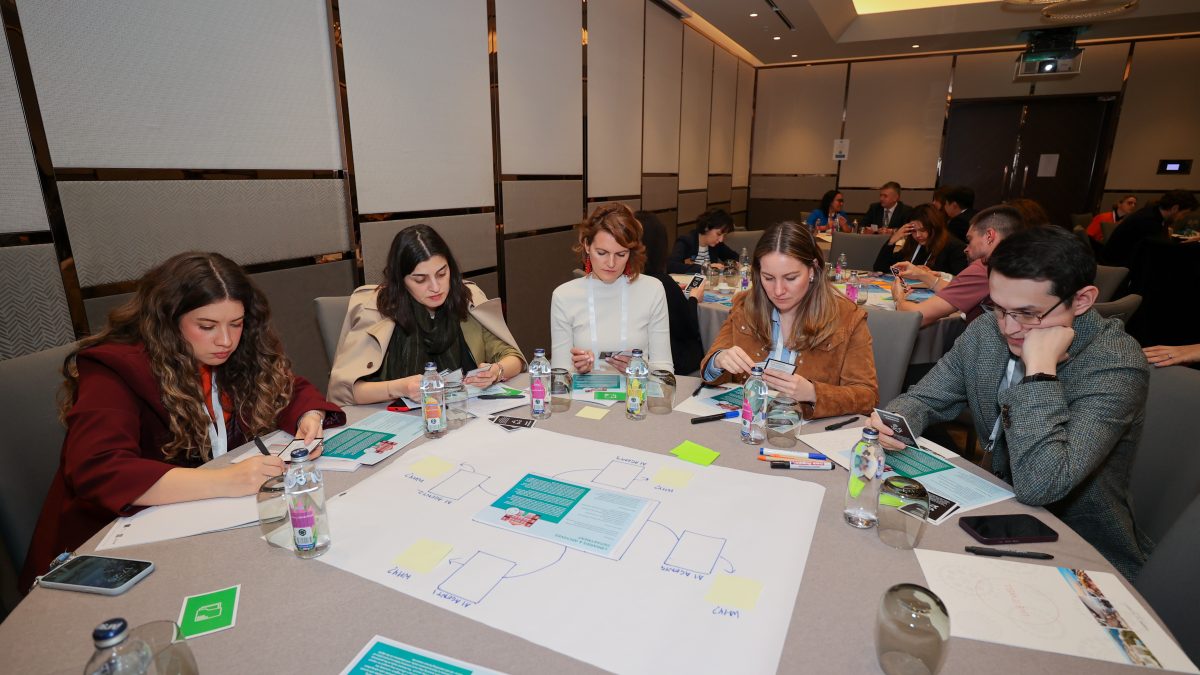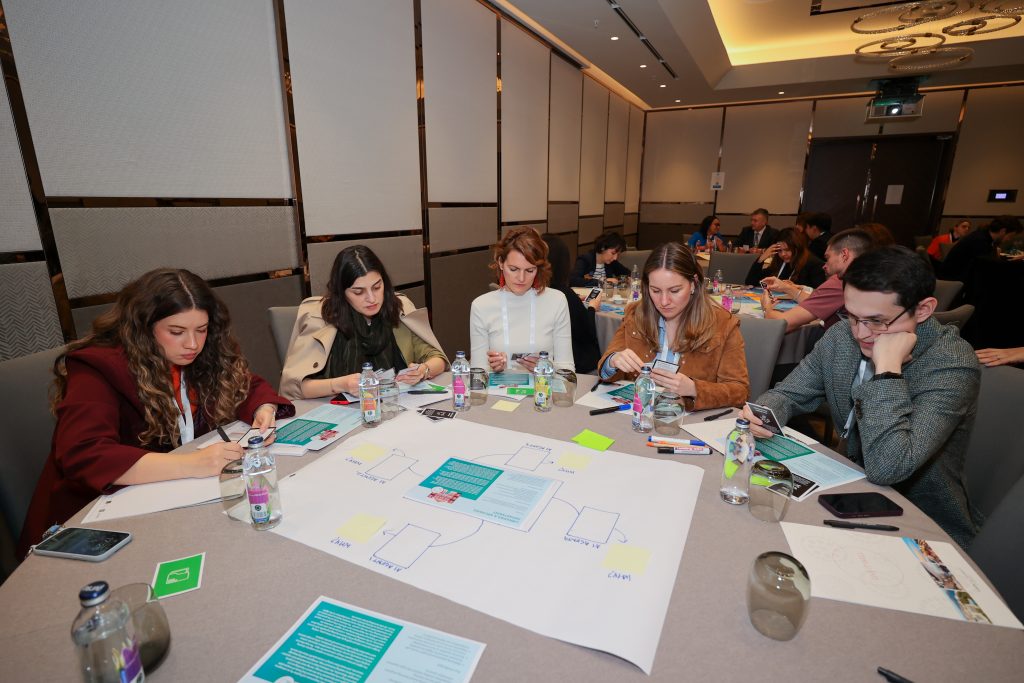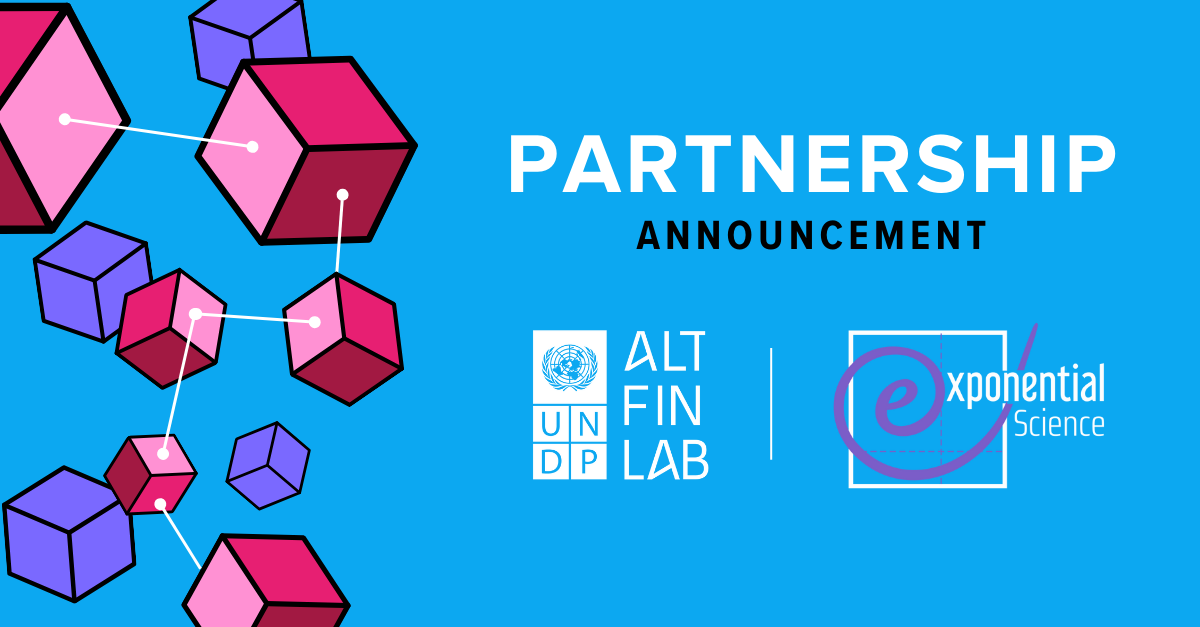
Istanbul Innovations Days 2025 | Reimagining Institutions in the Age of AI Agents
Following the Istanbul Innovation Days held in March 2025, we are releasing a series of articles capturing key insights, bold ideas and solutions that emerged […]


Following the Istanbul Innovation Days held in March 2025, we are releasing a series of articles capturing key insights, bold ideas and solutions that emerged from the conversations on institutional innovation. From reimagining partnerships to leveraging frontier technologies, these stories showcase opportunities to rethink and transform institutional paradigms.
In our previous blog, “Reimagining Institutions in the Age of AI Agents,” we explored how AI agents are poised to reshape public institutions through enhanced efficiency, adaptive decision-making, and novel governance practices inspired by our workshop at Istanbul Innovation Days. Building on those insights, today we dive deeper into the existential challenge of integrating AI into everyday decision-making and the careful balance needed between technological precision and the human touch.
The integration of agentic AI into our daily lives poses both a technical upgrade and an existential challenge—one that forces us to rethink how we build, govern, and experience our collective life. As we strive for greater efficiency, consistency, and scalability, we confront a new tension that needs to be resolved: AI excels at processing patterns and data, yet it remains fundamentally detached from the lived experiences that shape human judgment with nuance and meaning.
Institutions have always relied on human judgment — a mix of cultural understanding, personal experience, and intuitive context. Today’s bureaucracies often struggle under the weight of inefficiencies and outdated structures. AI promises a remedy by automating routine decisions, standardizing processes, and delivering speed unimaginable in the past. However, this efficiency comes at a price. When an AI system processes a building permit or screens a loan application, it might deliver rapid, consistent outcomes, but it also risks erasing the subtle human insights that arise from community interactions and local knowledge.
This tension isn’t abstract. It permeates the very way we make collective decisions. For instance, in our current systems, a slow, deliberative process can foster community dialogue and preserve diverse perspectives. Yet, when algorithms streamline these processes, they may unintentionally enforce consensus, much like AI models that default to prevailing narratives, sidelining nuance and dissent. In other words, while AI can democratize information and speed up operations, it might also homogenize vision—transforming our institutions into efficient yet soulless mechanisms.
Prospecting the challenges above into the future, we suggest two provocative scenarios to reframe our understanding of institutional future. Ultimately, these thought experiments aim to spark imagination and thinking on implications of AI beyond productivity advancements.
Scenario 1: AI-Driven Bureaucracy
Imagine a future where a building permit application, once a forum for nuanced local negotiations, is processed entirely by an AI system. Efficiency soars as decisions are rendered within minutes, yet the subtle community interactions and local expertise diminish. This scenario encapsulates the promise of streamlined, data-driven governance and the existential challenge of preserving the rich human insights that traditional bureaucracy once provided.
Scenario 2: Personalized Regulation
Imagine a society where rules and regulations are no longer uniform but dynamically tailored to each individual. Here, AI systems continuously adjust service delivery in real time, basing decisions on personal histories and local contexts gathered through immersive narrative platforms. While this hyper-personalization promises fairness and responsiveness, it also raises concerns over the erosion of shared civic norms and the risk of fragmenting community experience into isolated, algorithmically defined profiles.
These speculative scenarios compel us to reimagine institutional design. Such visions raise critical questions: Who is accountable when an AI-mediated decision goes wrong? How do we prevent the centralization of power in those who control the algorithms? And, most importantly, how do we maintain a vibrant democratic process that values dissent as much as consensus?
We must develop new models that balance the speed and precision of AI with mechanisms that preserve human creativity, contextual understanding, and, ultimately, our agency. This leads us to suggest three guiding institutional design values:
The integration of AI into our institutional frameworks is more than a technological evolution—it requires reimagining of our social contracts. To navigate this transformation, we must use AI’s potential without sacrificing the human elements that give our institutions meaning. By embracing these three principles, we can strive toward a future where technology and humanity not only coexist but mutually enrich one another, paving the way for institutions that truly serve human flourishing.
RELATED POSTS

Following the Istanbul Innovation Days held in March 2025, we are releasing a series of articles capturing key insights, bold ideas and solutions that emerged […]

September 15, 2025 – Istanbul/London — The United Nations Development Programme (UNDP) and the Exponential Science Foundation have announced a partnership to develop the Government […]

UNDP Armenia is in the process of starting a partnership with Plastiks to address the country’s underdeveloped recycling infrastructure by piloting a blockchain-based model that […]